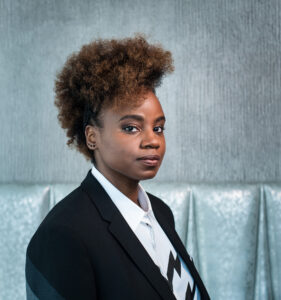
Highly acclaimed movie director and Florida A&M University graduate Dee Rees is an absolute beast in the film industry.
Not only has she independently created films that have received recognition in high places, but she is the first black woman to receive an Oscar nomination for the Best Adapted Screenplay in history.
Of course she has been recognized for this historical accomplishment, but why aren’t we talking about her now? Why don’t students on campus know about Rees?
If you don’t know who Rees is or why she is a hidden gem in the film industry, let me tell you why.
Rees graduated in 2000 with a master’s in business administration. After a few years of working in marketing with beauty companies, she decided to pursue her interest in film without any experience.
At New York University’s graduate film program she failed until she found her voice. There she met her mentor, Spike Lee, a legend who has directed classic black films such as “School Daze” and “Do the Right Thing”.
This being an honor and a privilege in itself, Rees continued on to create her first film, “Pariah” in 2011, which originally was a short film for her graduate thesis. This film made it to The Sundance Film Festival where it won an award for Excellence in Cinematography. “Pariah”, as her first feature film, received several awards and nominations.
In 2015, Rees won an Emmy for her HBO film, “Bessie”, which also received several other nominations.
In 2017, Rees made history being the first black woman to be nominated for Best Adapted Screenplay. Along with four Oscar nominations, Bessie received over 100 nominations between 2017 and 2018, according to IMDb.
Rees has won the 2016 Directors Guild of America Award for Outstanding Directorial Achievement in Movies for Television and Miniseries and the NAACP Image Award for Outstanding Directing in a Television Movie.
Rees loves showing support to other black women artists, according to IndieWire. Working with other great black women from the entertainment industry such as Mary J. Blige and Queen Latifah, Rees continuously demonstrates her love for herself and her people. Although she cannot always portray her own story directly, she finds other ways to insert pieces of herself into her work.
According to an article from The New York Times highlighting her survival as a black female director, “Less than 5% of major Hollywood movies are directed by women”. This statistic would explain the need for any woman in the industry to not only prove herself, but to develop a thick skin.
Rees takes everything with a “grain of salt.” “I never trust it’s going to happen until you see a grip truck pulling up”, Rees said to The New York Times. As a black woman, it is imperative that she moves this way in order to spare herself of disappointment if one of her ideas isn’t picked up.
Rees should be an inspiration to all students regardless of gender, classification or major.
As black people, “we’re the producers and the consumers”, Rees said to the New York Times. With that being said, we are the next generation of producers and consumers. We should be striving to work on projects we are passionate about and break down boundaries in the same way as Rees!
So I must say, again, why aren’t we talking about Rees? If you go on Instagram or Twitter and search #DeeRees, it is flooded with appreciation for her and her projects. Her name on our campus should create an even bigger hype.
I encourage everyone to check out Dee Rees. She is most definitely worth your time.
Most of Rees’ films include black females as the main character and some include the famous black women we look up to in entertainment. “Bessie” starred Queen Latifah and “Mudbound” starred famous R&B artist, Mary J Blige.
Rees enjoys working with other black women as well as finding ways to portray her own story.